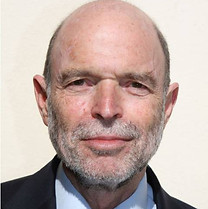Demographic and the aging - the impact of ageing on pension systems and on labour markets
featuring faculty from Sciences Po, GraSPP, LSE and Munk
Wednesday, 15 Nov 2023
7am New York | 8am São Paulo | 12pm London | 1pm Paris/Berlin
7pm Singapore | 8pm Tokyo
Ageing has many causes: increase in life expectancy, papy boom and decrease in fertility. These elements have long weighed on pension systems, leading to many reforms in OECD countries. The impacts of these reforms are now visible: return of poverty amongst pensioners, increase in inequalities amongst pensioners between those who rely only on basic public pensions and those complementing with private fully funded schemes. What is less discussed (and more recently visible) are the consequences of ageing on the labour market, ie labour shortage.
This more recent development can explain various trends in the OECD labour market: the quiet quitting, demonstrations in the UK or Germany and the French protest against pension reforms asking to work longer without changing working conditions. With less people available on the labour market, workers are more able nowadays to negotiate wage and working conditions. What is at stake is also rethinking more inclusive and qualitative modes of management, able to embark workers in the various transitions firms have to face: the demographic, but also the digital and environmental transitions.
Join our expert panelists in this fourth webinar of the GPPN: Thinking Public Policy series, and hear their take on the impact and consequences of ageing on pension systems and labour markets.
Speaker
Bruno Palier
Bruno Palier is CNRS Research Director at Sciences Po, Centre for European Studies and Comparative Politics. He co-directed then directed the LIEPP (Laboratory for interdisciplinary Evaluaiton of Public Policies) between October 2014 and July 2020. He works on the comparative political economy of welfare state reforms. He is currently co-leading a project on the world politics of social Investment and another one on Growth and Welfare in Global Capitalism.
Between 2007 and 2011, he was the scientific coordinator of an European Network of excellence RECWOWE (Reconciling Work and Welfare, involving 30 European research institutions or Universities, 190 researchers from 19 European countries). In Sciences po, he is the director of a joint programme Sciences Po-Northwestern University: “Health Policy in Europe". Between 1994 and 1998, he has organised for the French Ministry of Social Affairs a programme called “Comparing Wlefare systems in Europe”. Between 1999 and 2005, he launched and took part of the management of an European Cost programme (Cost A15) : "Reforming social protection systems in Europe".
Speaker
Ito Peng
Ito Peng is a Professor of Sociology and Public Policy at the Department of Sociology, and the Munk School of Global Affairs & Public Policy. She is also the Director of the Centre for Global Social Policy, University of Toronto. She teaches political sociology, specializing in family, gender, and demographic issues, migration and comparative social policy. She has written extensively on family and gender policies, labour market changes, and social and political economy of care in East Asia.
Professor Peng is the Principal Investigator of a SSHRC funded partnership research project called Gender, Migration and the Work of Care: International Comparisons, that examines how the reorganization of care influences the global migration of care workers, and how this migration in turn impact family and gender relations, gender equality, government policies, and global governance.
Professor Peng is a senior fellow of Massey College and Trinity College, University of Toronto; and a senior fellow of Asia Pacific Foundation of Canada. She has been an associate researcher with the UNRISD since 1996. Dr. Peng received her Ph.D. from London School of Economics.
Speaker
Nick Barr
Nicholas Barr FRSA has an MSc in Economics from the London School of Economics and a PhD from the University of California, Berkeley, where he was a Fulbright Scholar. He is Professor in Public Economics at the London School of Economics, the author of numerous articles, and author or editor of over twenty books, including The Economics of the Welfare State (5th edition, 2012), Pension Reform: A Short Guide (with Peter Diamond) (2010, also in Chinese and Spanish), and Financing Higher Education: Answers from the UK (with Iain Crawford), (2005).
The heart of Professor Barr's work is an exploration of how market failures can both explain and justify the existence of welfare states. He is a member of the Editorial Board of the International Social Security Review and an Associate Editor of CESifo Economic Studies, the Australian Economic Review and the Journal of the Economics of Ageing.
He was a member of a small group invited to advise the government of China on pension reform, presenting their findings to the Premier in 2004; and he and Peter Diamond were invited to present a follow-up report in 2009. More recently, he was a member of a Presidential Commission on Reform of the Pension System in Chile which presented its report to the President in 2015. He has also advised governments in the UK, China, Finland, Sweden and South Africa (where he also contributed to the Lund Committee on Child and Family Support).
Speaker
Daiji Kawaguchi
Daiji Kawaguchi is a Professor of Economics at the University of Tokyo. Dr. Kawaguchi graduated from Waseda University (B.A., 1994), Hitotsubashi University (M.A., 1996), and Michigan State University (Ph.D., 2002). In addition to his position at the University of Tokyo, Kawaguchi is a program director of the Research Institute of Economy, Trade and Industry. Before joining the University of Tokyo faculty in 2016, Kawaguchi was an Assistant Professor of Economics at Osaka University (2002-03) and the University of Tsukuba (2003-05), and Associate and full Professor at Hitotsubashi University (2005-2016). He has also been a Visiting Scholar at the University of California, Berkeley (2005-06).
Professor Kawaguchi's field of research is labor economics focusing on the formation and utilization of human capital. He has worked on the skill accumulation of self-employed workers, the effect of family background and academic performance, wage inequality, and the assessment of various labor market policies. I am also working on the human resource allocation within a firm using proprietary personnel data sets.






